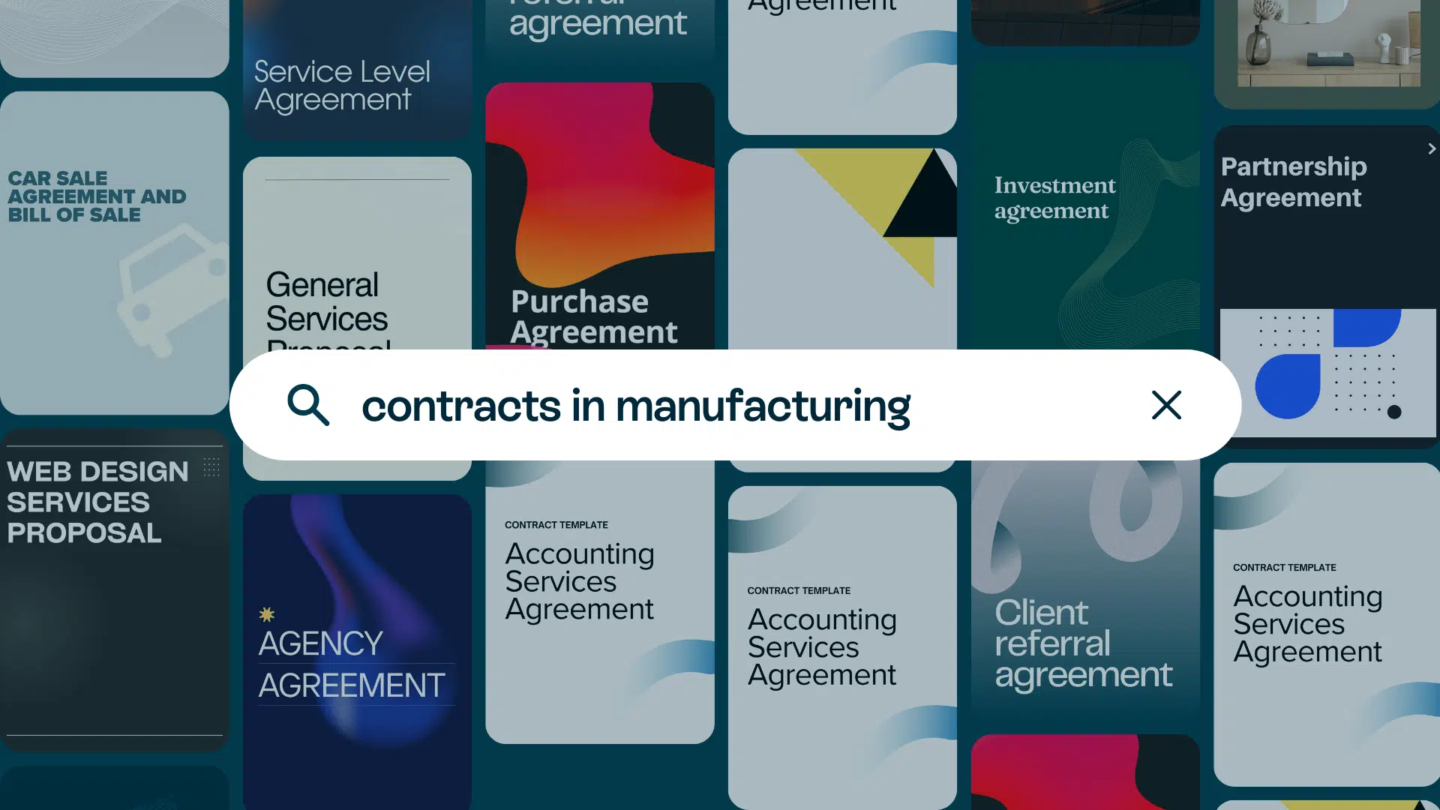Exception clauses in contracts may seem like a complicated topic, but fear not! We’re here to break it down and make it as clear as crystal (or at least as clear as legal jargon can be). So buckle up and get ready to dive into the world of exception clauses!
What is an exception clause?
Before we jump into the nitty-gritty, let’s start with the basics. An exception clause is a provision in a contract that acts as a safety net, protecting parties from certain unforeseen events or circumstances. It’s like having an umbrella handy when the rain comes pouring down unexpectedly.
But what exactly does an exception clause entail? Let’s delve deeper into its definition and basic concept.
Read also: A Basic Guide on Electronic Signatures and What Makes Them Legal

Definition and basic concept of exception clauses
Exception clauses are those fine print sections that outline situations where one or both parties won’t be held accountable for a breach of contract. In other words, they serve as a legal shield to avoid any finger-pointing when things go awry.
Imagine you’re selling one hundred rare spoon collections to an avid collector, and suddenly a wild fire breaks out, turning your spoons into molten metal. An exception clause could potentially protect you from being held responsible for delivering the goods in such a catastrophic scenario.
Exception clauses come in various forms, such as force majeure clauses, which cover events beyond human control like natural disasters, acts of terrorism, or government actions. They can also include hardship clauses, which address situations where unforeseen circumstances make it excessively difficult for one party to fulfill their contractual obligations.
These clauses are not meant to be a loophole for parties to evade their responsibilities. Instead, they provide a means to address unforeseen events that could not have been reasonably anticipated or prevented.
The role of exception clauses in contracts
Exception clauses aren’t just there to create a legal escape hatch; they’re an essential part of contract writing. They bring a much-needed balance between contractual obligations and the unpredictable nature of the world we live in. Think of them as the Batman of contracts — here to save the day!
Not only do exception clauses protect parties from unforeseen situations, but they also help manage risk and allocate responsibilities between the parties involved. By clearly delineating the circumstances under which liability is limited or waived, these clauses provide a sense of certainty and fairness.
Moreover, exception clauses encourage parties to negotiate and consider potential risks and contingencies before entering into a contract. This proactive approach helps avoid misunderstandings and disputes down the line, promoting smoother business relationships.
It’s important to note that the inclusion of an exception clause should be a carefully considered decision. Parties must assess the specific risks associated with their contract and tailor the clause accordingly to strike a balance between protecting their interests and maintaining the overall fairness of the agreement.
So, next time you’re drafting a contract, make sure to give a tip of the hat to these unsung heroes, the exception clauses. They provide the necessary flexibility and protection in an ever-changing world, making contracts more robust and reliable.
Read also: Creating an effective contract database

Types of exception clauses
Now that we’ve covered the basics, let’s take a stroll through the different types of exception clauses. Keep your eyes peeled, because you might just learn something fascinating!
Force majeure clauses
Imagine a scenario where contracts are being signed left and right when a Godzilla-like creature emerges from the depths of the ocean, wreaking havoc on the city. In such apocalyptic situations, force majeure clauses come into play. These bad boys cover events that are completely beyond the control of parties involved, such as earthquakes, pandemics, or even zombie invasions!
Exemption clauses
Picture this: you’re throwing a grand feast, and you hire a master chef to prepare a scrumptious meal fit for royalty. But horror strikes when your guests start clutching their stomachs and racing for the bathroom. Exemption clauses can come to the rescue by limiting your liability in case of any food-related mishaps. Bon appétit!
Read also: Save time with these free business template from Oneflow
Limitation clauses
Let’s say you’ve decided to organize a thrilling adventure race that spans treacherous terrains, soaring mountains, and icy waters. While living life on the wild side can be exhilarating, it also comes with risks. Limitation clauses are there to put a cap on liability, ensuring that participants understand and accept the dangers involved. Safety first, folks!
How to interpret exception clauses
Now that we’ve covered the different types of exception clauses, it’s time to put on our detective hats and learn how to interpret them correctly.
Understanding legal anguage
Legal lingo can feel like stumbling into a foreign country without a map. Fear not! When interpreting exception clauses, it’s crucial to navigate the language with keen attention to details. Look out for words like “including,” “notwithstanding,” or “provided that” to uncover the true meaning behind the legal jargon.
The role of context in interpretation
Context is the secret sauce to interpreting exception clauses. Think of it like solving a puzzle: you need to gather all the right pieces to truly understand the big picture. Analyzing the surrounding clauses, contractual objectives, and the nature of the agreement can help shed light on the true intent of the exception clause.
Read also: Contingent contracts: A complete guide

The legal effect of exception clauses
Now that we know how to interpret these tricky little clauses, let’s explore their legal effect. Brace yourself because we’re about to dive into the depths of legal ramifications!
How exception clauses can limit liability
Exception clauses can be a powerful tool in limiting liability, making them incredibly valuable to the parties involved. They define the boundaries and establish the extent of responsibility each party carries under specific circumstances. Like a well-crafted shield, exception clauses protect against unnecessary legal battles and financial burdens.
The impact on contractual obligations
Contracts are built on the foundation of mutual promises, but sometimes life throws us a curveball. Exception clauses play a pivotal role in allowing parties to fulfill their contractual obligations while acknowledging that certain events might make it impossible to meet those obligations. It’s like adding a pinch of flexibility to the mix!
Read also: All you need to know about Oneflow electronic signatures and the eIDAS regulation

Drafting exception clauses
Now that we have a good grasp of exception clauses’ superpowers, let’s explore some key considerations when drafting these mighty provisions.
Key considerations when drafting
When drafting exception clauses, it’s vital to anticipate potential risks and contemplate worst-case scenarios. Detailed and clear wording is essential to ensure both parties fully understand their obligations, limitations, and potential avenues of escape. Remember, superheroes are only as good as their origin stories!
Common mistakes to avoid
Even the mightiest heroes have their flaws. When it comes to drafting exception clauses, keep your eyes peeled for common pitfalls. Ambiguous language, inadequate coverage, or failing to consider future uncertainties can leave you vulnerable to unexpected woes. So, be extra vigilant and avoid these traps like the plague!
And there you have it — a whirlwind tour of the intricacies of exception clauses in contracts. These little provisions might seem like the sidekicks of the legal realm, but rest assured, they play a vital role in maintaining the balance between contractual obligations and the unpredictable chaos of the world. So, next time you’re drafting a contract or finding yourself surrounded by legal jargon, remember the power and importance of exception clauses!
Just to be clear, as great as our website is, it doesn’t constitute legal advice. We’re only here to provide you with information. It’s great, useful information, but it’s not legal advice. We do our best to keep our content updated, but it may not be the most up-to-date legal or other information out there. We like to link to third-party sites. We do that for your convenience as our wonderful reader. But that also means that we’re not here to recommend or endorse any third-party sites.







